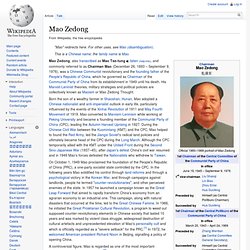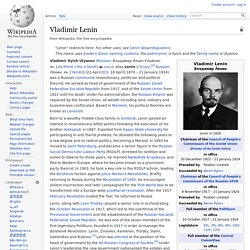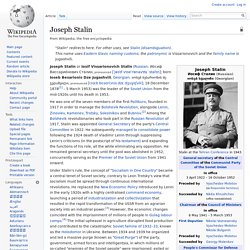

Adolf Hitler. Adolf Hitler (German: [ˈadɔlf ˈhɪtlɐ]; 20 April 1889 – 30 April 1945) was an Austrian-born German politician who was the leader of the Nazi Party (German: Nationalsozialistische Deutsche Arbeiterpartei (NSDAP); National Socialist German Workers Party).

He was Chancellor of Germany from 1933 to 1945 and Führer (leader) of Nazi Germany from 1934 to 1945. As effective dictator of Nazi Germany, Hitler was at the centre of World War II in Europe, and the Holocaust. Hitler was a decorated veteran of World War I. He joined the precursor of the NSDAP, the German Workers' Party, in 1919 and became leader of the NSDAP in 1921. In 1923 he attempted a coup in Munich to seize power. Hitler actively sought Lebensraum ("living space") for the German people. Early years Ancestry Hitler's father, Alois Hitler, Sr. (1837–1903), was the illegitimate child of Maria Anna Schicklgruber. Childhood and education Adolf Hitler as an infant (c. 1889–90). Early adulthood in Vienna and Munich World War I Beer Hall Putsch.
Mao Zedong. Mao Zedong, also transcribed as Mao Tse-tung listen , and commonly referred to as Chairman Mao (December 26, 1893 – September 9, 1976), was a Chinese Communist revolutionary and the founding father of the People's Republic of China, which he governed as Chairman of the Communist Party of China from its establishment in 1949 until his death.

His Marxist-Leninist theories, military strategies and political policies are collectively known as Maoism or Mao Zedong Thought. On October 1, 1949 Mao proclaimed the foundation of the People's Republic of China (PRC), a one-party socialist state controlled by the CPC. In the following years Mao solidified his control through land reforms and through a psychological victory in the Korean War, and through campaigns against landlords, people he termed "counter-revolutionaries", and other perceived enemies of the state.
Early life[edit] Youth and the Xinhai Revolution: 1893–1911[edit] Fourth Normal School of Changsha: 1912–19[edit] Mao in 1913. Vladimir Lenin. Vladimir Ilyich Ulyanov (Russian: Влади́мир Ильи́ч Улья́нов; IPA: [vlɐˈdʲimʲɪr ɪˈlʲitɕ ʊˈlʲanəf]), alias Lenin (/ˈlɛnɪn/;[2] Russian: Ле́нин; IPA: [ˈlʲenʲɪn]) (22 April [O.S. 10 April] 1870 – 21 January 1924) was a Russian communist revolutionary, politician and political theorist.

He served as head of government of the Russian Soviet Federative Socialist Republic from 1917, and of the Soviet Union from 1922 until his death. Under his administration, the Russian Empire was replaced by the Soviet Union; all wealth including land, industry and business was confiscated. Based in Marxism, his political theories are known as Leninism.
Lenin, along with Leon Trotsky, played a senior role in orchestrating the October Revolution in 1917, which led to the overthrow of the Provisional Government and the establishment of the Russian Socialist Federative Soviet Republic. Early life Childhood: 1870–87 University and political radicalism: 1887–93 Revolutionary activities The 1905 Revolution: 1905–07. Joseph Stalin. Joseph Stalin or Iosif Vissarionovich Stalin (Russian: Ио́сиф Виссарио́нович Ста́лин, pronounced [ˈjɵsʲɪf vʲɪsɐˈrʲɵnəvʲɪtɕ ˈstalʲɪn]; born Ioseb Besarionis Dze Jugashvili, Georgian: იოსებ ბესარიონის ძე ჯუღაშვილი, pronounced [iɔsɛb bɛsɑriɔnis dzɛ dʒuɣɑʃvili]; 18 December 1878[1] – 5 March 1953) was the leader of the Soviet Union from the mid-1920s until his death in 1953.

He was one of the seven members of the first Politburo, founded in 1917 in order to manage the Bolshevik Revolution, alongside Lenin, Zinoviev, Kamenev, Trotsky, Sokolnikov and Bubnov.[2] Among the Bolshevik revolutionaries who took part in the Russian Revolution of 1917, Stalin was appointed General Secretary of the party's Central Committee in 1922. He subsequently managed to consolidate power following the 1924 death of Vladimir Lenin through suppressing Lenin's criticisms (in the postscript of his testament) and expanding the functions of his role, all the while eliminating any opposition.
Early life Rise to power J.